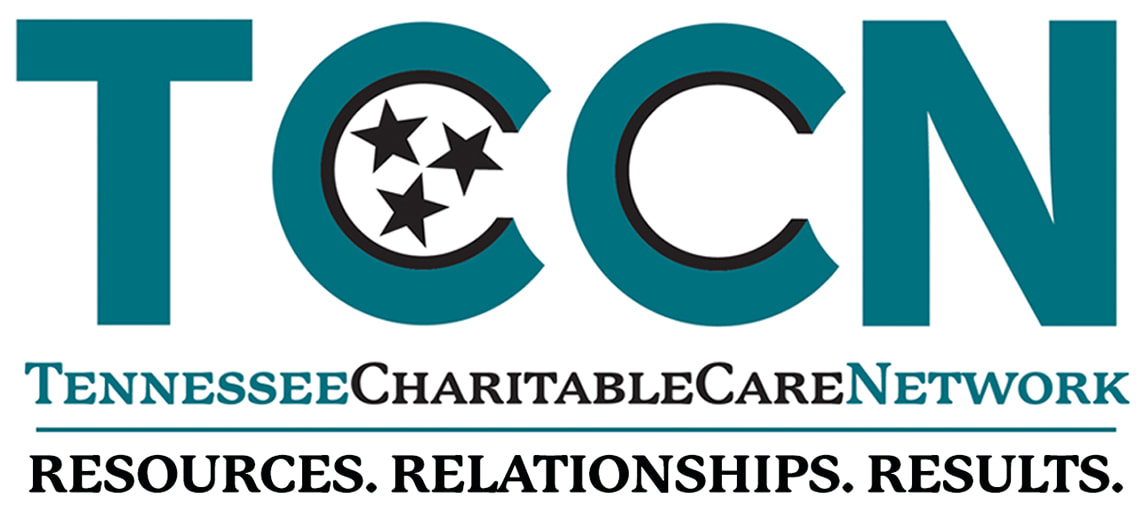Our History
Established in 2014, to ensure that Tennessee's charitable care organizations are equipped to effectively respond to the health care needs of vulnerable populations now and into the future.
The Tennessee Charitable Care Network (TCCN) was established in 2014 to ensure that Tennessee’s charitable care organizations are equipped to effectively respond to the health care needs of vulnerable populations now and into the future. Faced with common challenges, such as the changing healthcare landscape, limited financial resources, reliance on volunteers versus full-time staff, and a lack of training resources, key leaders within the state’s charitable clinics identified the need for a statewide membership association. TCCN was initiated by these leaders to provide a collective voice for charitable clinics, along with the resources and expertise needed to tackle shared challenges in an effective and efficient way. The leadership and collaboration provided by TCCN ensure that charitable clinics can successfully meet patient needs while navigating the changing environment, improving systems and quality, and developing services tailored to the unique needs and assets of each community.
TCCN Timeline
2012 |
Community and Faith-based clinics begin discussions about shared needs and desire to work together to advocate for service to their communities.
|
2013 |
A Steering Committee is formed from participants at a convening meeting in May to assess the need for a statewide association. Tennessee's first statewide conference is held at the Hospital Corporation of America headquarters with staff from 20 clinics attending.
|
2014 |
TCCN is incorporated as a 501c3 nonprofit charitable organization on February 25, 2014. Membership is then opened to all qualified charitable care organizations acorss the state of Tennessee. In 2014, TCCN's inaugural year, the organization received funding from three different foundations across the state. These grants were extremely important and allowed TCCN to kick-start programming and hire an Executive Director.
|
2015 |
By early 2015, 22 clinics of approximately 50 statewide joined the network; 18 clinics participated in member surveys framing their educational needs as well as developing common data for reporting; a development plan was initiated with grant prospect research completed and a case for support drafted; the first annual educational conference was held with 40 participants from 15 clinics participating; and a legislative day on Tennessee's Capitol Hill was cohosted with the Tennessee Primary Care Association (TPCA) with 15 charitable clinic representatives participating.
TCCN, in partnership with the TPCA, successfully advocated to not only maintain the current $12 million Health Care Safety Net Fund in the state budget but also to increase it by $1.5 million for the next fiscal year. This helped TCCN establish a strong partnership with the Tennessee Department of Health (TDH). |
2016-
|
By the end of 2019, the network had grown to include 49 members at 54 locations, serving 70 of Tennessee's 95 counties and providing medical and dental services to Tennessee's most vulnerable. The network also added specialty care coordination services through Project Access.
|
2020-2022 |
TCCN was awarded funding from several organizations including Tennessee Department of Health, Sostento, and Americares. Much of this funding was passed forward to our members to help promote vaccine awareness and confidence, eliminate health care disparities, hire and develop Community Health Workers, and improve quality of service delivery and health care outcomes. This allowed our team and our presence within the state to grow.
|
2023 |
TCCN is a small but growing organization. With 6 full time team members supporting the work of our members, TCCN is helping to strengthen the safety net, improve quality of care, grow and sustain Community Health Workers in Tennessee, and promote and advocate for the work of our incredible member organizations.
|
2024 |
Milestones of Hope: 10 Years of Compassionate Care
Ten years ago, TCCN was founded to provide free and charitable clinics with a collective voice and ensure members are equipped to effectively respond to the health care needs of Tennessee’s most vulnerable populations. This year, we’re celebrating a decade of providing members with resources to tackle shared challenges in an effective and efficient way, creating opportunities for members learn and grow by developing relationships with each other, and celebrating the results of our collective impact together. As we look ahead to the next decade and beyond, TCCN will continue to support our members working to increase their organizational capacity, develop and sustain a thriving workforce, and increase awareness of free and charitable care through effective marketing and storytelling. |



